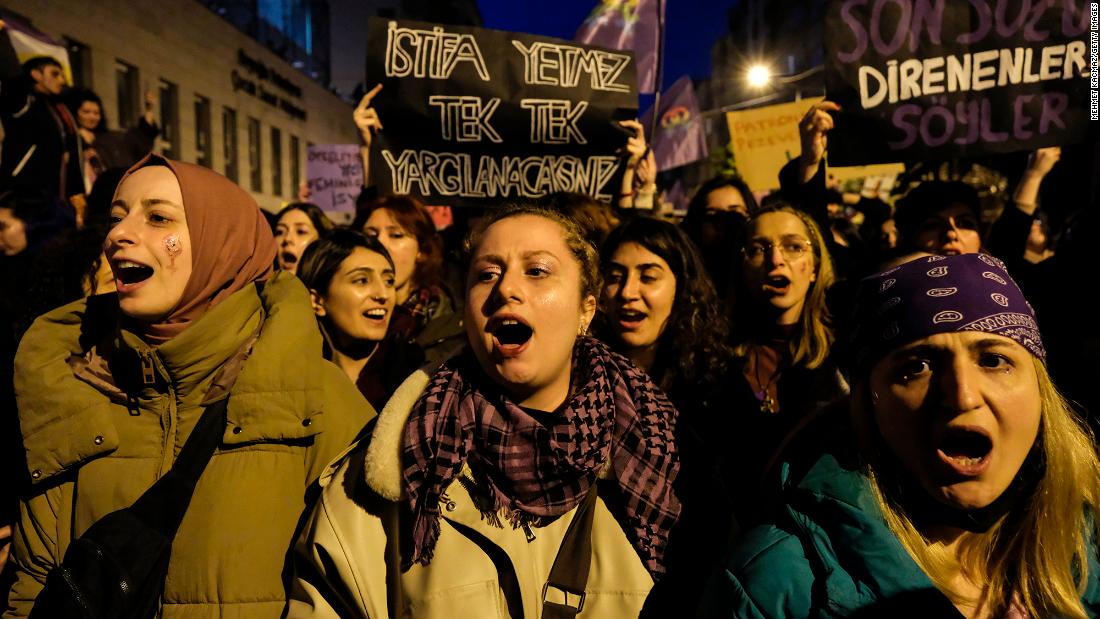Erdoğan lashes out at ECHR’s landmark ‘anti-Turkey’ ruling
Turkish president Recep Tayyip Erdoğan has strongly criticised the European Court of Human Rights (ECHR) for its supposed ‘anti-Turkey’ stance, during his opening speech of the legislative year in Ankara.
The Strasbourg-based court had ruled that an imprisoned teacher’s rights have been violated in Turkey — in a landmark decision that could have far-reaching implications for tens of thousands facing similar charges in Turkey.
-

The ECHR in Strasbourg found the teacher’s detention breached three articles on the convention on human rights (Photo: barnyz)
Referring to the ECHR’s ruling on teacher Yüksel Yalçınkaya, Erdoğan claimed the judgement was the last straw that broke the camel’s back.
The ECHR ruling has effectively demolished the reasoning underpinning the Turkish judiciary, which has sentenced hundreds of thousands of citizens on flimsy evidence of membership of a terrorist organisation since after the botched coup attempt of July 2016.
And the court’s decision potentially sets a precedent for tens of thousands of similar cases at ECHR.
In an open challenge to the authority of the court, setting the stage for a new clash between European institutions and Ankara, Erdoğan made it clear that Turkey would not abide by the court’s ruling during his recent speech.
Accusing ECHR of supporting terror organisations, Erdoğan said: “We will neither respect nor heed the calls of institutions that are in the same basket with terrorists”.
Yalçınkaya’s lawyer, professor Johan Vande Lanotte, said it was unfortunate for Erdoğan to announce Turkey would not abide by the judgement, although it did not come as a surprise.
Lanotte, who served as the deputy prime minister of Belgium for more than 13 years, underlined the judgement would set a precedent for tens of thousands of Turks who face similar charges.
“The ruling should be implemented in Turkey and I hope there will be courageous judges who would do so,” he said. “I think it is a fact that EU is lenient on Turkey because of the refugee crisis. However, EU should make it clear that business cannot go on with Turkey as usual. The Union should apply pressure,” he added.
EU ‘too soft’ for fear of refugee influx?
In its landmark ruling at the end of September, the grand chamber of ECHR said Turkey violated three articles of the European Convention on Human Rights in the case of Yalçınkaya — namely Article 7 (no punishment without law), Article 6 (right to a fair trial) and Article 11 (freedom of assembly and association).
Teacher Yalçınkaya was convicted of membership in a terrorist organisation in 2017 by a high criminal court due to his links to the Gülen movement.
The Turkish court based its ruling on his alleged use of the encrypted ByLock app, membership in a labour union and having an account at Bank Asya. Yalçınkaya’s sentence was upheld by Turkey’s Supreme Court of Appeals in October 2018. And the Turkish Constitutional Court also rejected the application lodged by Yalçınkaya as inadmissible.
The ECHR criticised Turkey’s use as evidence of ByLock as broad and arbitrary, and lacking necessary safeguards for a fair trial.
The court also noted that Turkish authorities used Yalçınkaya’s legal membership in a trade union as evidence against him, thereby violating his right to freedom of assembly and association under Article 11.
In the aftermath of the failed coup attempt in 2016, having an account at the now-closed Bank Asya (one of Turkey’s largest and legal commercial banks at the time); using the encrypted ByLock messaging application (downloadable on Apple’s App Store and Google Play); and subscribing to the Zaman daily, were all construed as benchmarks for identifying and arresting alleged followers of the Gülen movement.
Ömer Faruk Gergerlioğlu, a member of the Turkish Parliament from the pro-Kurdish Green Left Party (YSP) and a prominent human rights activist, said the ECHR ruling was “extremely important” — not only for the victims but for everyone in Turkey who was seeking justice.
“It was like how Nazis treated Jews, people were labelled as being members of a terrorist organisation overnight and imprisoned in hundreds of thousands. Hundreds committed suicide or lost their health. It was like a genocide,” he said.
Criticising the EU for being too soft on Erdoğan, Gergerlioğlu said the Turkish president was using the issue of refugees as a blackmail against Brussels.
“EU should have been more outspoken on human rights violations but apparently they are concerned about a possible influx of refugees,” he said.
If Erdoğan keeps his promise and does not implement the ECHR judgement, Turkey could face a similar fate to Russia, which was expelled from the Council of Europe in March 2022, Lanotte said.
“If Turkey does not respect the court’s decision, then there is committee of ministers who should decide about the future of Turkey in Council of Europe. I think the decision time is getting closer,” he warned.

